When I set out for China on the evening of the 25th, it will not be my first trip there. Back in 2000, Carol and I celebrated our 35th anniversary on a biking and hiking trip to China with our dear friends Eli and Phyllis Segal, whose wedding we’d attended a week before our own in June of 1965.
I look back on that 2000 trip with very fond, but bittersweet, memories, because Eli died some six years ago. Since, of course, I have no photos yet from the second China trip and want to try out adding photos to this blog. I’ll share two of my favorites from our first trip, the four of us drinking champagne (well, Carol has Coke) atop The Great Wall and Eli smiling broadly with his new peasant friend he’d met 5 minutes earlier.
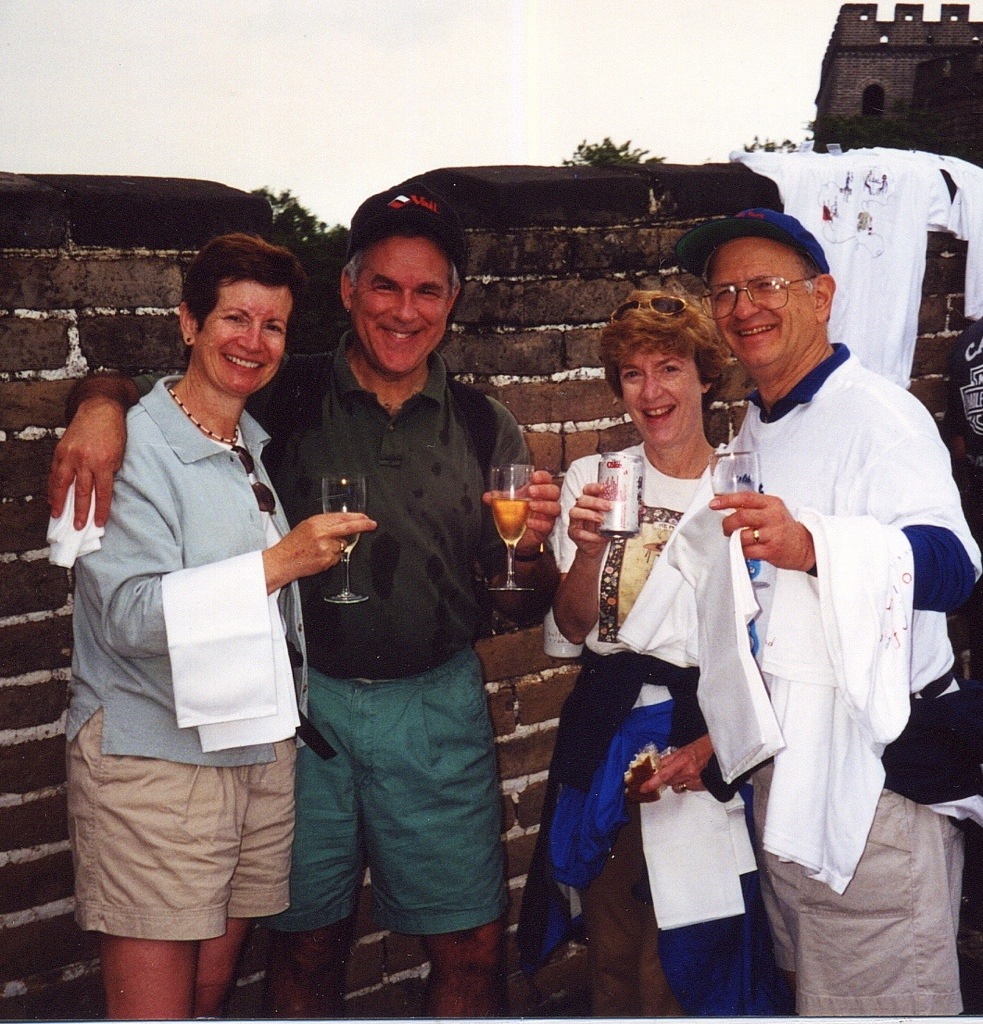
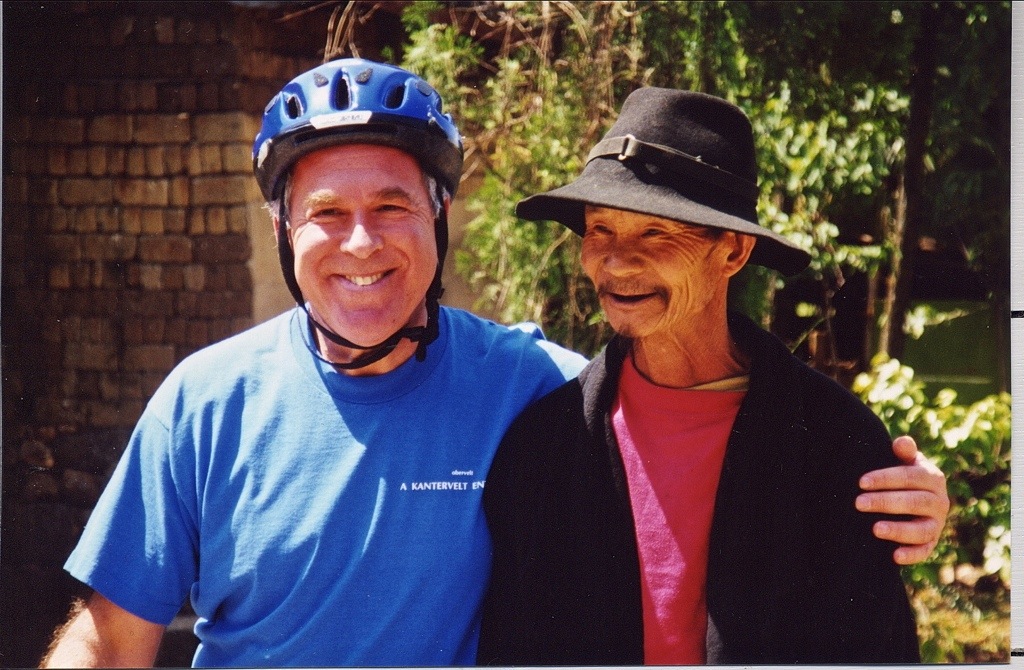
So, I’m off in a couple days, and this is going to be a very different trip from those I’ve taken before. I am looking forward to it greatly, but with a tad of trepidation.
I’m going with a small group, led by a wonderful travel photographer, Nevada Wier. Spending a few minutes on her website, will show you why I say “wonderful.” www.nevadawier.com. Ten enthusiastic photographers will accompany Nevada and two Chinese friends for two weeks, visiting the hill tribes of Guizhou. As the trip focuses on photography, Carol will not be coming.
So why the tad of trepidation? This trip is far from the luxury travel that Carol and I have done. For example, we have never been asked to bring a sheet and pillow case along on our travels, as I am doing on this one. For the most part, we will be staying in very basic accommodations. So this trip may be a bit more of a real adventure – rather than the illusion of adventure that I generally shoot for in our luxury exotic travel. Nevada was very clear in her materials saying that this trip was not for everyone. I’m hoping that it is for me. And I actually have a high degree of confidence that it is.
The second reason for trepidation is the fear of being exposed as the decidedly amateur photographer that I am. That, too, is not a big fear, since I acknowledge it and expect that being in the company of Nevada and the others in the group will teach me a great deal that I hope will improve my work. The group aspect of the trip is also a slight concern, as I’ve been spoiled by traveling only with Carol and a few friends. But given the common interests of group members and the fact that they must be adventuresome souls to be taking a trip like this, I think that will work out fine, too. Who knows, I may even make a few new friends.
As, for the most part, I will be in rather remote places, it is likely that I will not be able to post things frequently (if at all) when I am on the trip. So you may be flooded with posts after I return. The two exceptions to this should be the few days that I’m spending before the group trip in Beijing and the few days I’m spending afterwards in Singapore, where I should have Internet access.
So, see you in Beijing.
Well, I’ve read through the blog, so I can now confirm that it was another fabulous trip.
What made the trip so great? Here’s a list that is almost certainly incomplete:
1. The companionship among our group of five
2. The wonderful people we meet in Ghana, most of them by now old friends.
3. The complete immersion in the trip itself (for me, a relatively rare opportunity to stay in the moment for an extended period of time).
4. The sense that something good is coming out of all this.
5. A reality check on what is important in life.
6. The stimulating conversations that we had over meals, while driving, while we were observing and in debriefs. Many, but by no means all, of these conversations related to the purposes of the trip.
7. The exposure to a totally different world and culture.
8. The ability to learn and the humbling reminder of how little we know and/or understand.
9. The intellectual challenge of considering the issues involved.
This is not an easy trip. We cram an enormous amount into each day, and the days are lengthy. The travel is long, both getting over to Ghana and back, and the extensive car trips over bumpy roads or in heavy traffic. A great deal of mental energy is demanded, as well.
But it’s a true privilege to be able to participate in an adventure such as this. And, of course, it’s because of our good friends, Dick and Susie, that we’re able to do it.
As this is my third trip, it’s inevitable to (or at least damn hard not to) compare it to the prior two. Hands down the biggest difference was the involvement of Sola and Funmi Olopade. Having met with them several times and exchanged numerous emails over months, I knew that it would be great to have them along, but I did not appreciate how transformative and eye-opening it would prove. The trip would not have been nearly as productive, and certainly we would not have learned so much without them. Nor would it have been as much fun.
On the flip side of people participating, it would have been an even better trip, had Carol been along. Every one of the Ghanaians we’ve dealt with on prior trips said that they missed her, and so did I. Joe has pretty-much committed Carol to coming next year, as he told two chiefs and a district manager that she’d be there.
The meetings with governmental officials, and the much broader and more holistic approach to the issues were new and engaging. As schools were on break, I very much missed all of the school children who flocked around us at each stop in prior years. While it’s fine to see the buildings and meet with chiefs and governmental folks, as Susie says, this work is all about the children, and buildings without children are, well, just buildings.
A trip such as this leaves you spinning. There’s a lot of digesting and sorting out left to do. But I expect to begin regular contacts soon with the Kipharts and the Olopades, as well as the people in Ghana, to identify what we’ve learned and what that suggests in the way of future work. Indeed, there’s already been email exchanges with the Kipharts and the Olopades on next steps, even though the latter are now in Nigeria. This trip is far from over.
I hope you’ve enjoyed coming along. I’ve appreciated the comments I’ve gotten from many of you. Some have wondered how I have time to write the blog. I don’t. But I do it all for you. Actually, that’s a lie. I do it to try to get a handle on the experience, and as a substitute for a written journal. Okay, and I really like to be followed.
Hope to see you all in China in late October.
Pack and down for breakfast, where we are joined by Joe and Ida. Funmi and Sola left at 4:30 AM to catch a flight to Nigeria, so we said our goodbyes to them last night. Farewell hugs to Joe and Ida, and then a long drive to Accra, with the air conditioning not working. Breathing the outside air is more of a problem than temperature.
We drive to a kindergarten under construction near Peter’s home to be known as the Eduful/Kiphart International School. The school is being developed by Peter’s NGO, FASUL(short for family succor link) and funded by the Kipharts. Eventually, the school will cover all grades through middle school.
A short drive to Peter’s comfortable home, where we have a drink and visit with Peter’s cute 5-year old grandson, Felix, and daughter, Naomi.
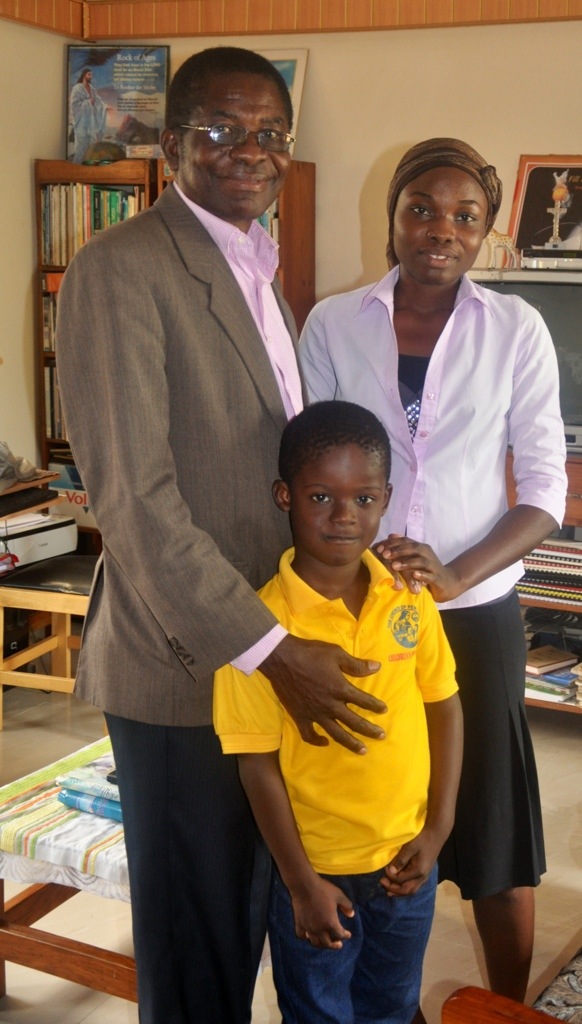
We have now switched to the other vehicle, air conditioning working, in which we drive, through heavy traffic to the upscale Palm Beach Hotel, where we partake quickly of an excellent buffet lunch. A short drive from there is the Artist Alliance Gallery/Museum. Through the help of Dick’s friend in Chicago, Scott Meadow, we arranged to be shown around the gallery by Leo Glover, manager of the gallery and son of well-known Ghanaian painter, Aglade Glover. Leo received a business degree from USC, and was a terrific, low-key guide through the gallery. Two and a half hours later, we emerged from the gallery, having done substantial “damage,” but quite content with our purchases.
En route to the airport, we made a very short stop at a place that carves wooden coffins in the shapes of fish, buses, crabs, cameras and other items to reflect the work that the deceased did. We arrive at the airport five hours early. Sola left his iPad on the plane on the way here and Dick gets run all around the airport trying to track it down, finally learning that the damn plane had been cleaned in Monrovia! At least Sola didn’t leave shaving cream, or it would be gone for sure. Delta is to check with Monrovia and let Dick know whether they find the iPad.
We clear immigration and security without problems and go to the business class lounge for snacks and blogging.
We talked more over breakfast about Sola’s project indoor pollution in Nigeria. As indicated earlier, indoor pollution causes two million deaths annually, mostly either women or young children, who spend time in the kitchen, either on their mother’s backs or by her side. Sola is now testing results among two groups in Nigeria, one of whom has been given clean burning ceramic stoves and the other group that is just being educated about the dangers and given suggestions as to how to avoid it. The problem has attracted the attention of The World Bank and others, and Sola has received a couple awards for his work.award for his work. In addition to the health benefits of controlling this problem, it has a number of unintended benefits, including, kids won’t have to fetch as much wood (because the ceramic stoves burn much more efficiently), girls will not be raped fetching wood, and their would be a huge affect on global warming. I told Sola that he needs to brand this problem, in order to make people aware of it and to attract funding to combat it, and suggested something like Indoor Pollution Syndrome (or IPS).
Even though it doesn’t fit in this spot, here’s a picture of Sola and Susie.
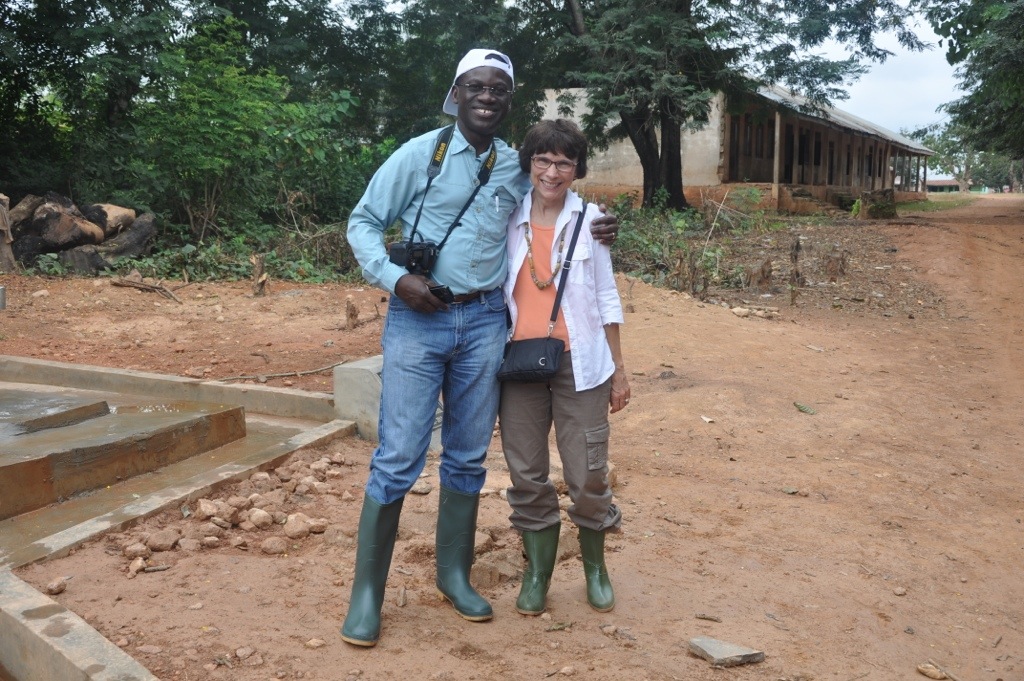
We drove to the Cape Coast School of the Deaf, with Joe and Ida. Both the Kipharts and the Kwartengs have actively supported the school, the latter through an NGO that they run to encourage school farms, in which students can learn agricultural and animal raising skills hands on. Joe and Ida are very proud that the school has won the national award for the best school farm the past two years, which is unprecedented. We toured the school farm with the Kwartengs and the head of the school.
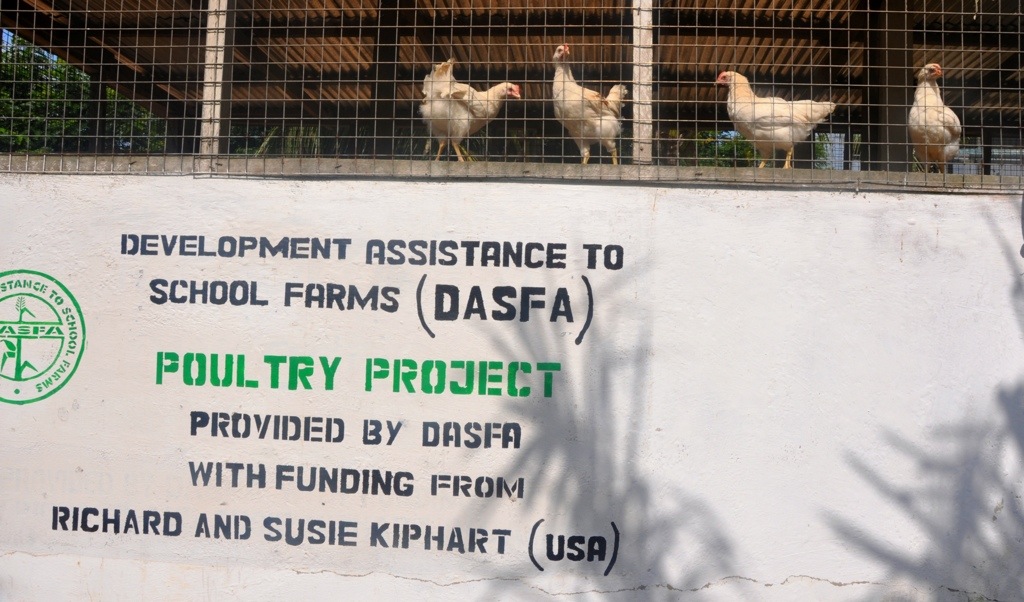
Our next stop was at a very large (over 1500 students) technical high school, called Mankessim, where we saw a much larger school farm. Joe, a very charismatic figure, had the rapt attention of the students, when he preached to them about the benefits and opportunities in farming. We were also very interested to hear about and see a computer lab of more than 70 computers that had been presented to the school by parents of the students. I told Dick and Susie that next year it would be interesting for us to sit in on a class and they (and Peter) agreed.
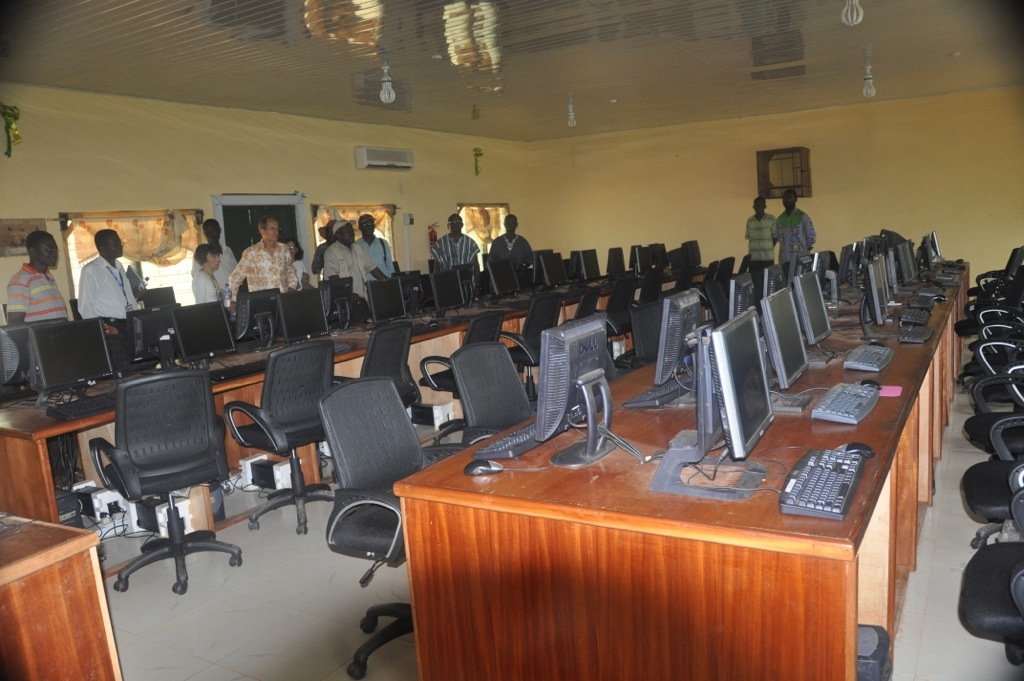
Another sign (no pun intended) of things to come was a large sign at the school that was in both English and Chinese.
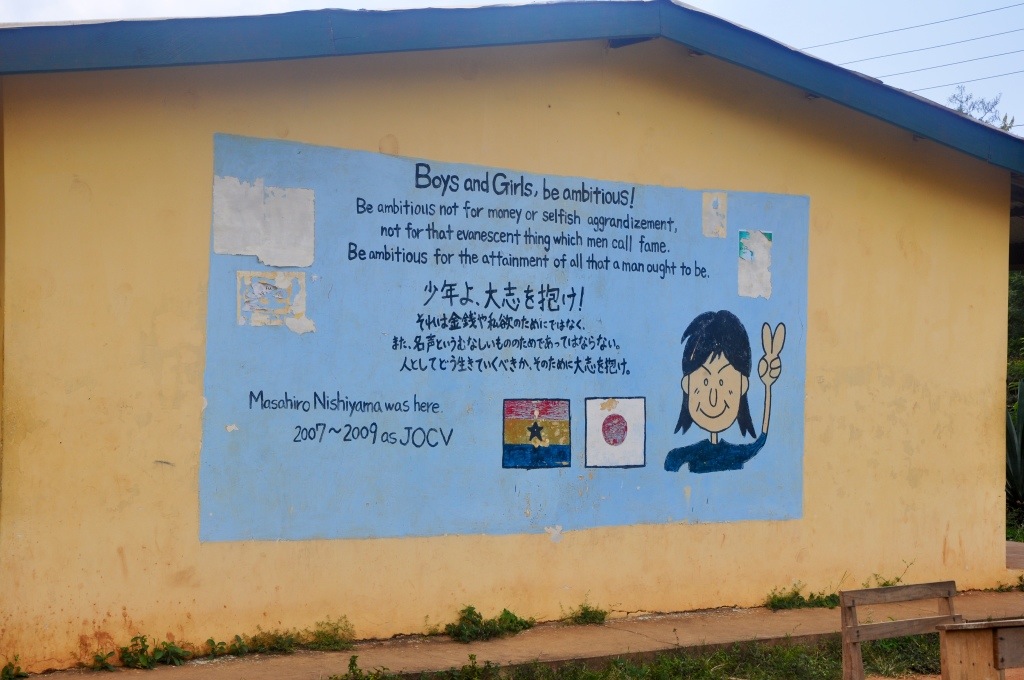
The Chinese have been very active throughout Africa, not always positively. An article in today’s local paper was headlined Ashanti under siege from Chinese miners, and told of illegal gold mining in the Ashanti area.
I was also able to do a small environmental improvement project, as I noticed one of Peter’s young men throwing a plastic water bottle on the ground (I’d also seen one flying out the window of the SUV, when we were following it. I told Peter who was quite upset by it, as he says he’s told them not to do that many times. He went over to the offender and quietly told him to go pick up the plastic bottle. A journey of a million miles ……..
The rest of the day was spent on matters relating to Dick and Joe’s very impressive pineapple operations. First we went to an area of approximately 200 acres, where their first crop had recently been harvested and sold to France. Then we drove on to another area of 2000 acres, where we saw people working, and were able to try planting a pineapple ourselves, not at all an easy task.
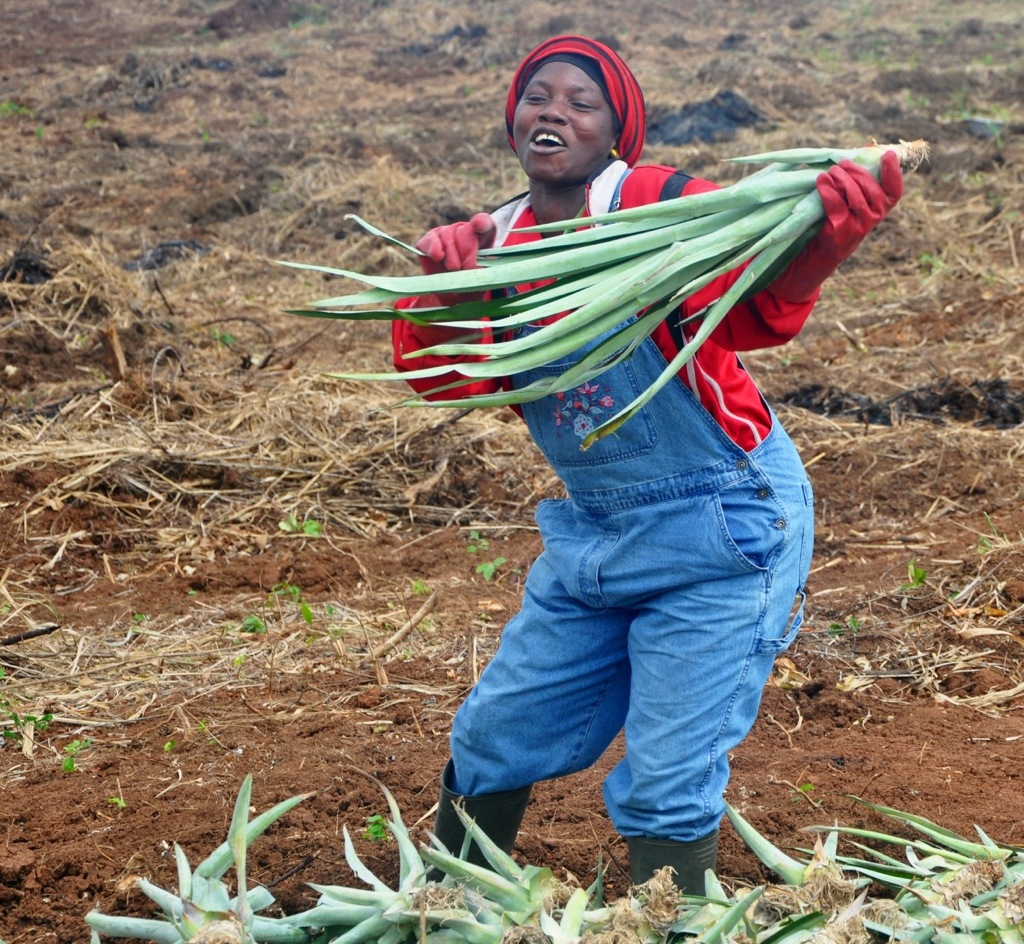
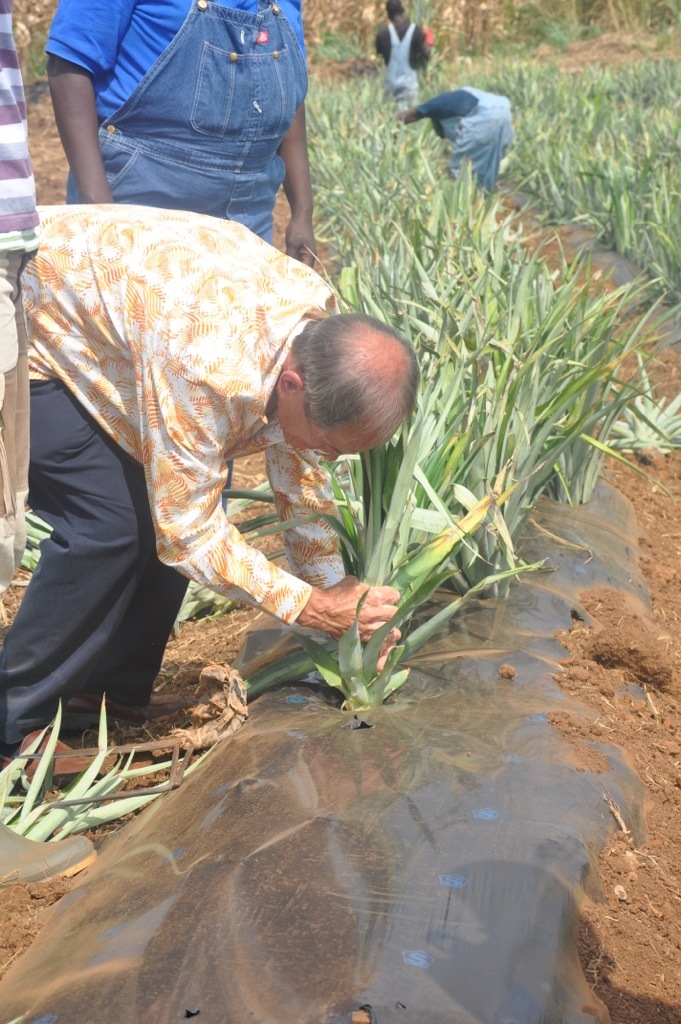
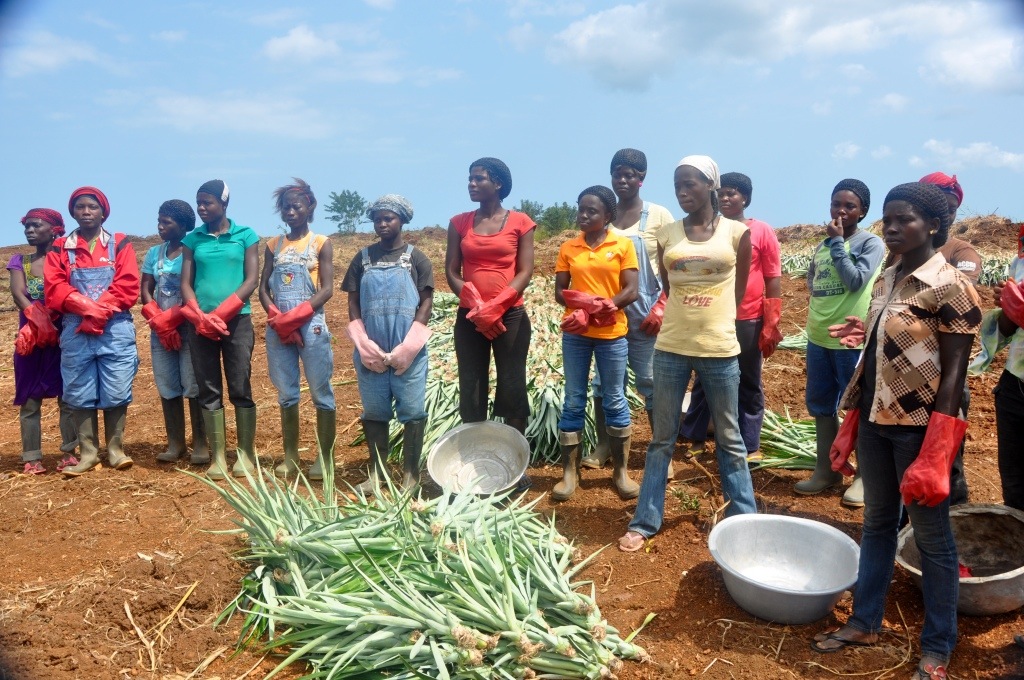
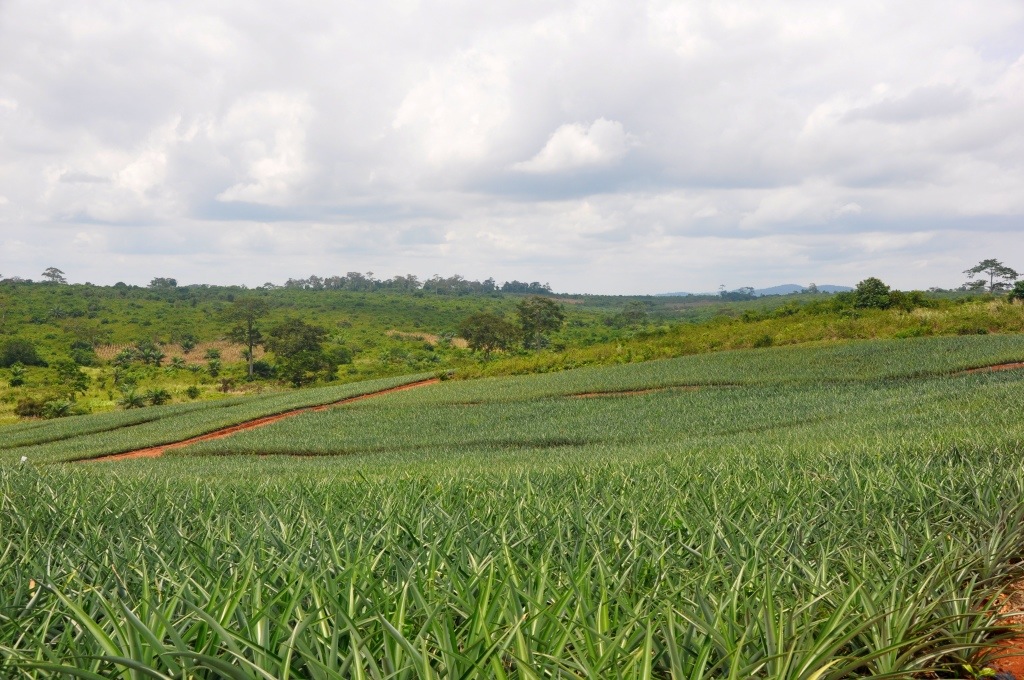
We then went to meet with a chief of chiefs and another chief, who had sold Joe the first 2000 acres and with whom terms had been reached for another 2000 acres. (By the way, the chief of chiefs, has a day job; he’s an accountant in Accra.) They wanted Dick and Joe to move quickly in purchasing the land and employing local people, but Joe has not wanted to rush spending the money until they were ready to use the land. Relationships between Joe and the chiefs was very friendly.
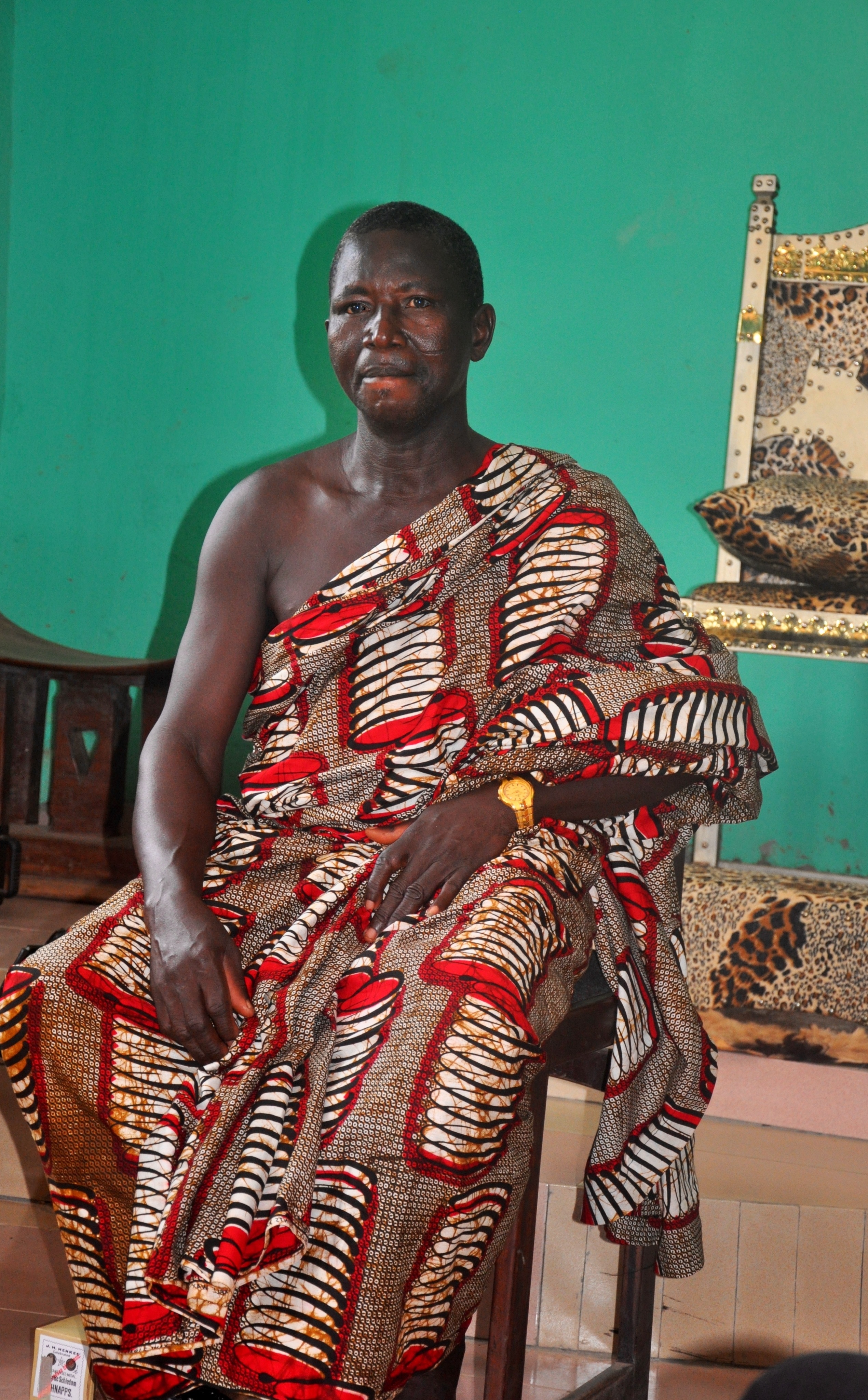
It’s a matter of our lack of understanding that Dick and I later discovered that the man who had sat front and center, wore a large gold watch and had done almost all of the speaking, was the chief of chiefs, when in fact he was only his mouthpiece. Funmi and Sola had understood that the man wearing brighter colors and sitting off to the side was the big chief.
At the insistence of the chiefs, we drove over to meet in a large conference room with the district manager. This was a waste of time, but interesting in its way. The district head blathered on about nothing in particular for a very long time. He took calls on his cell phone, twice, during the meeting. When one of the manager’s administrative cronies spoke and said they’d need information from Joe, Joe pretty much tore his head off. I complimented Joe afterwards in not calling the guy a “bureaucratic twit” and he confirmed that that was pretty-much what he had said to him
After arriving in Cape Coast, a couple hours drive from the district manager’s office, we travelled a long way over a bumpy road to a secluded restaurant on the beach. There we had a very good buffet dinner, joined by Joe and Ida, and their daughter, Lydia. For dessert, we sampled some of the delicious pineapple grown by Greenfields, Dick and Joe’s pineapple venture. After dinner everybody offered heartfelt toasts and comments about the amazing trip we’d had, the friendship of the group, and the prospects for very significant change, long term, based on the work being done and considered. I think we all were quite moved to be part of this really extraordinary group.
While others might rest, I had my blog to do.
Final breakfast at The Four Villages Inn and goodbyes to our hosts, Charity and Chris. We enjoy this vey cozy place. It’s like coming back home annually.
We set out into the normal heavy traffic and our birthday boy, Dick (I won’t tell you his age, but it rhymes with heaven-tea son), is not at all happy that we’ve added a stop to the itinerary. Fortunately, the rest of us are willing to cut the crabby old guy a little slack today.
To simulate the long, trafficy ride, I’ll tell you a little about the Ghana roadside. Displayed outside are goods of every type imaginable, ranging from small food stands to furniture of all types to windows to caskets.
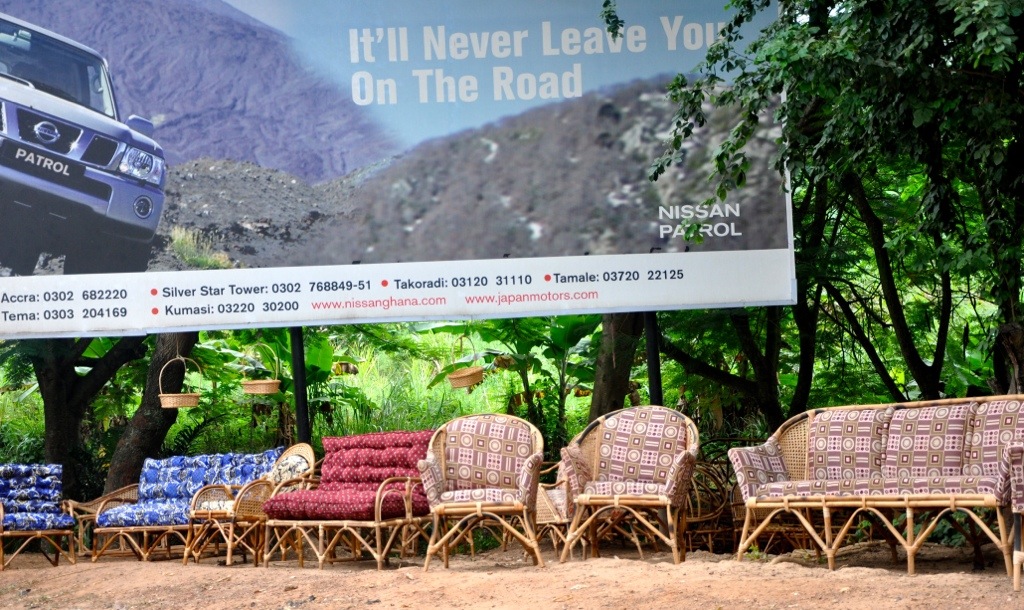
The influence of religion is everywhere. Trucks and autos have sayings stenciled on them such as God is Able, God’s Gift or Dependable God. The shops bear similar notions. Among those I noticed were: God is My Helper Decorator, Jehovah Plumbing, God is Able Carpentry Shop, God’s Way Computers, Choose Jesus Beauty Salon, Hand of God Stationery Depot, Be Holy Electric, Fair Heaven Herbal Shop, No King as Allah Enterprise, Thank You Jesus Phones & Accessories, God First Cosmetics, and, my personal favorite, Good Father Unisex Fashion Design (I think I’m going to start franchising those when I get back home). Schools also show the religious influence, Oasis of Love School. Go you fighting Oasis of Love tigers!
We reach our destination, the Supereso District Maternity Hospital, which Dr. Annie and Funmi have pushed us to see (over Dick’s protest. We are met and shown around by
Abeena Boateng, who runs The Millennium Cities medical operations in subsaharan Africa. Funmi knows Abeena and has contacted her by email to arrange this. When I ask Funmi how she knows Abeena, she says, “I know everyone.”. This is not boasting; it’s true.
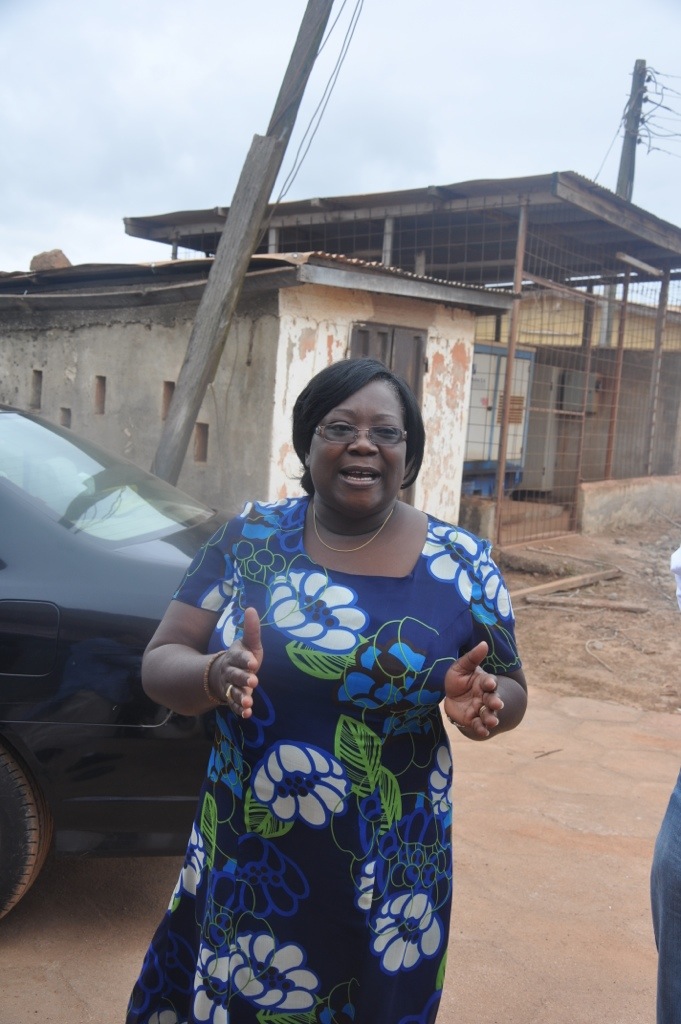
In this clean facility–we have to wash our hands and wear slippers and hairnets to enter, mothers kept 48 hours instead of 6-12 in Dr. Annie’s small maternity ward. By keeping watch on them, they are able dramatically to reduce infant mortality, which is high in the first 30 days and often not reported. Babies are not named for week, because they may not survive. The facility emphasizes a “kangaroo program”, which has mothers holding babies close to themselves, sharing body heat, avoiding hypothermia, and also helping bonding between mother and child. They teach mothers how to breast feed. The facility is another good example of Global Health, as it was built by Israel, who also provided training for the nurses.
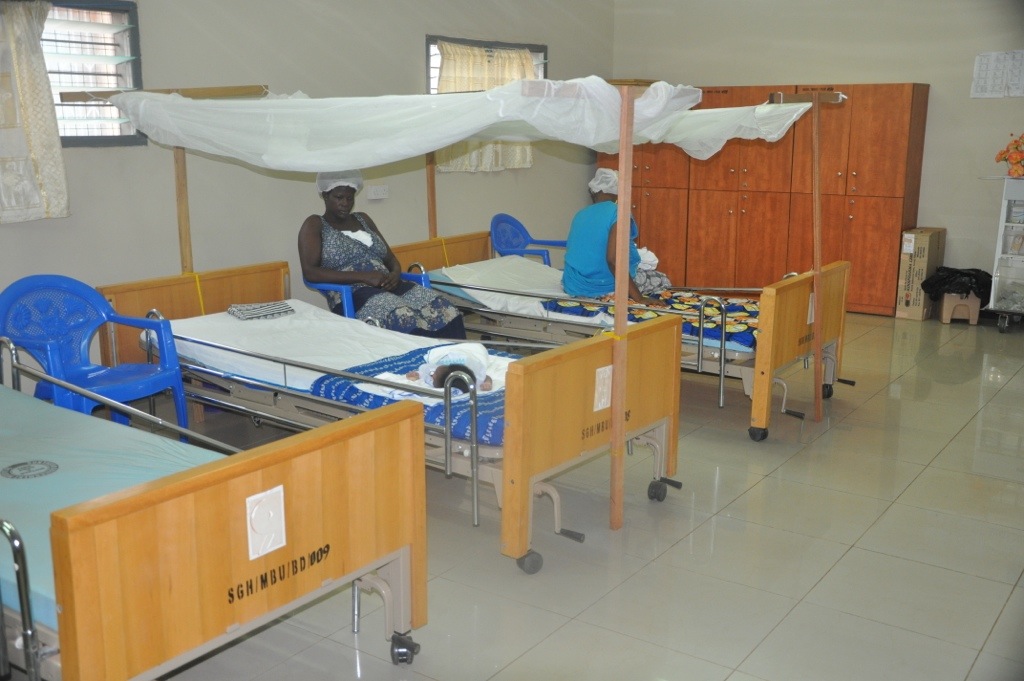
As we enter the car for the long ride to our next stop, even Dick has to admit that this turned out to be more interesting than he’d anticipated. And Abeena will be a valuable contact for the future. She also provides training for kindergarten teachers.
In the SUV, Sola reads us an article from his iPhone about a very large public health worker initiative in the US, so perhaps we’re catching up with Ghana and the rest of the world. En route we also have a chance to read through the amazingly candid report we were given yesterday by the district with comprehensive statistics on income, water, health, etc and analyses of what has gone wrong and why. The report was prepared by a national commission and, in it’s candor, is unlike any you’d find in the US.
Our ride is some three or four hours, some of it, because of a short cut, over extremely bumpy. bone-jarring roads. We are all happy to arrive at Mansokwaa. Here we are treated to the type of full-blown ceremony that we’ve witnessed in past years, with extensive speechifying and a ribbon cutting ceremony for the new block of school rooms donated by friends of the Kipharts. The community expresses its gratitude, and at the same time asks for additional funds (again, typical of what we’ve seen in past years).
The school facilities are decked out in a fresh coat of paint, and Sola cannot believe what has been accomplished here, in the middle of nowhere. Though school is out, all of the children are in attendance, along with many others in the community. The community has rented a sound system for the occasion (for which it collects donations during the ceremony), which blares very loud Ghanaian music, which women and children dance to. After the ribbon-cutting ceremony, we all walk a short distance through a cocoa grove to see a small, even more remote village.
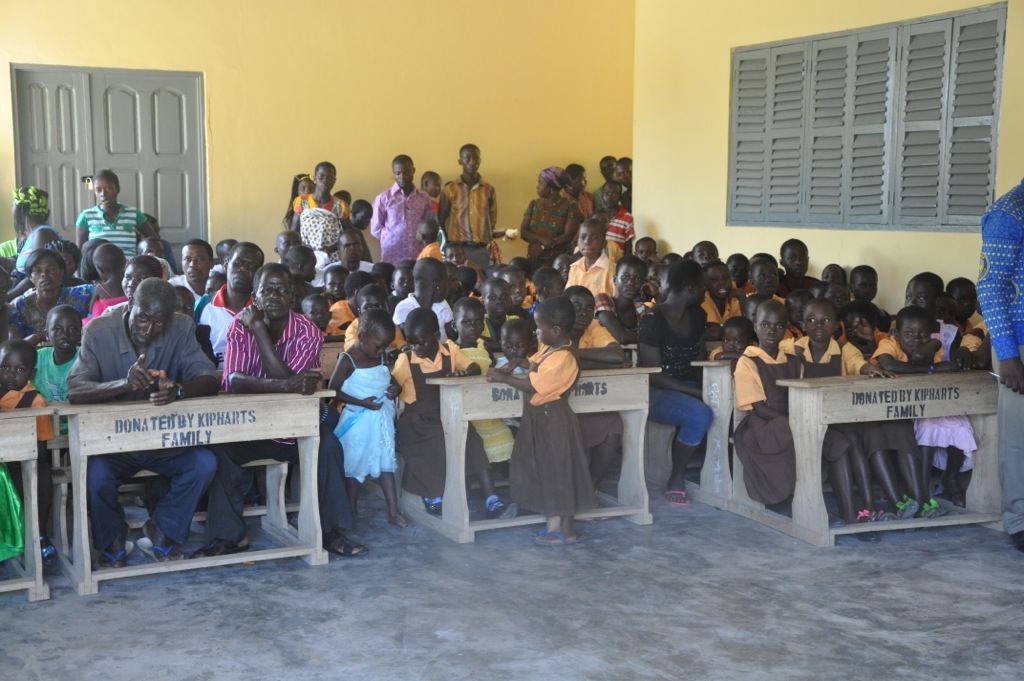
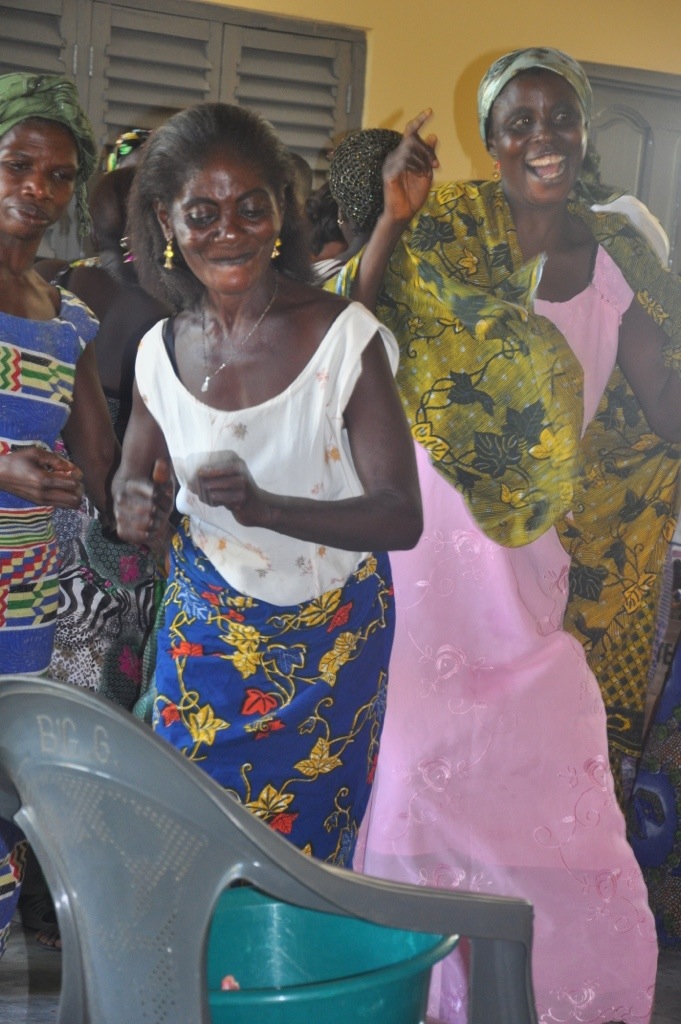
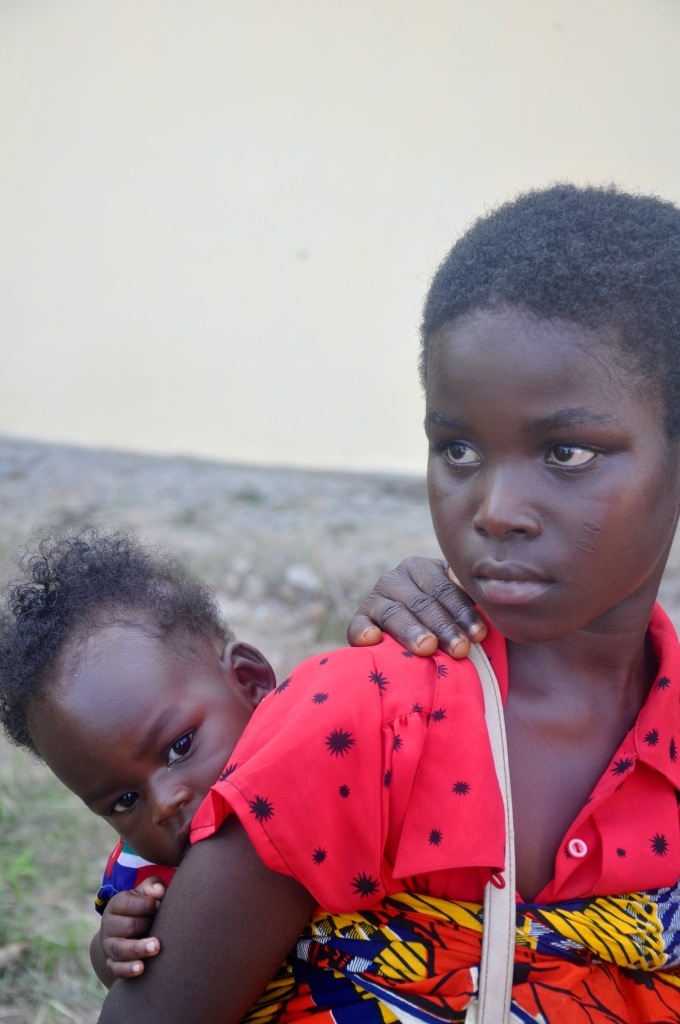
We pile pack into the SUV and head for Cape Coast, where we will spend the next two nights. Cape Coast used to serve as a jumping off point for the slave trade in the 19th century. On our first trip to Ghana, we visited the castle in which the slaves were held in horrific conditions before they were shipped out.
We are met at the hotel by Joe and Ida (reminder: if you’re having trouble identifying the characters, you can go back to my first post under Ghana, 2012, where they are identified). After a brief stop at the room, we go to the outside deck, where Joe and Ida have arranged a great birthday surprise for Dick, a performance by the dancers from the School for the Deaf, which Dick and Susie have supported. Joe and Ida have persuaded the leader, the drummers and the dancers to come back before school has started to perform. Carol and I have enjoyed the inspirational performances by these young people in each of the last two years.
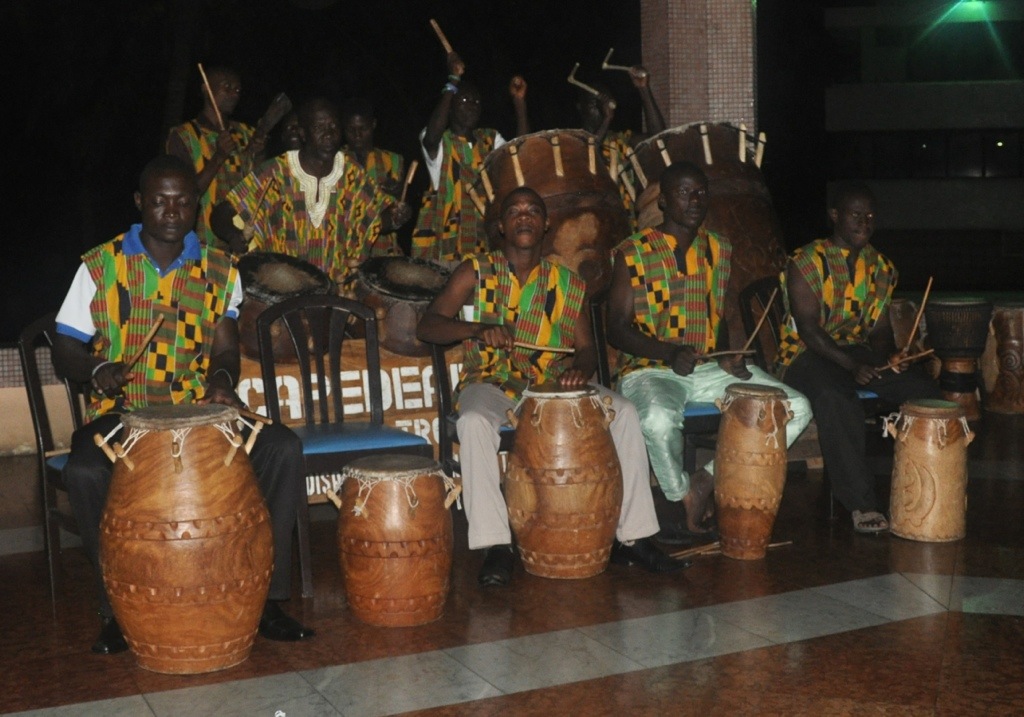
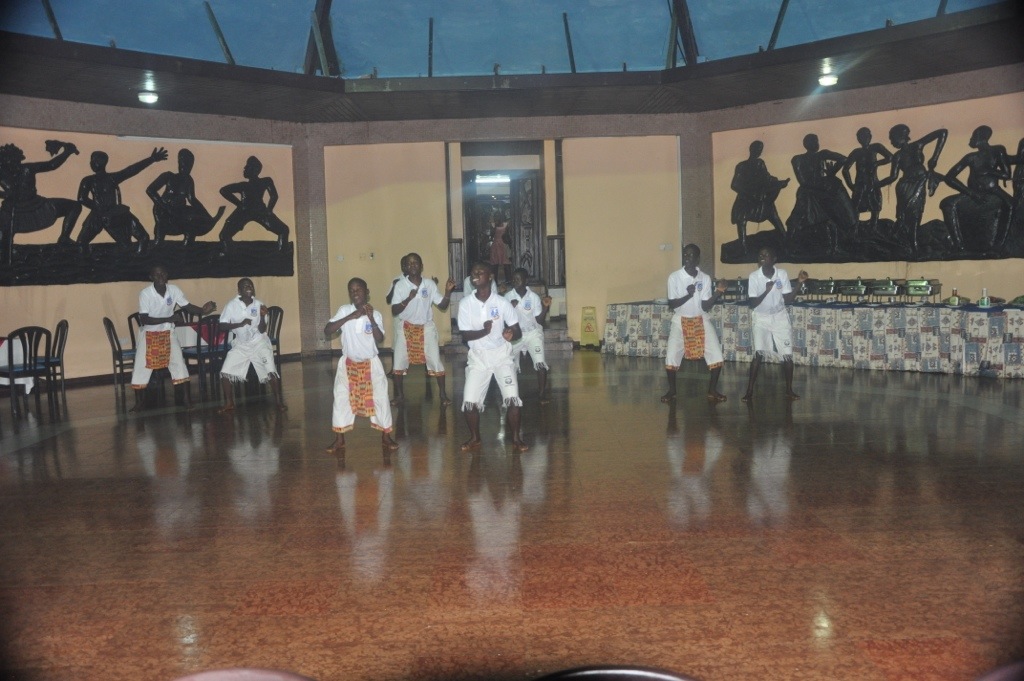
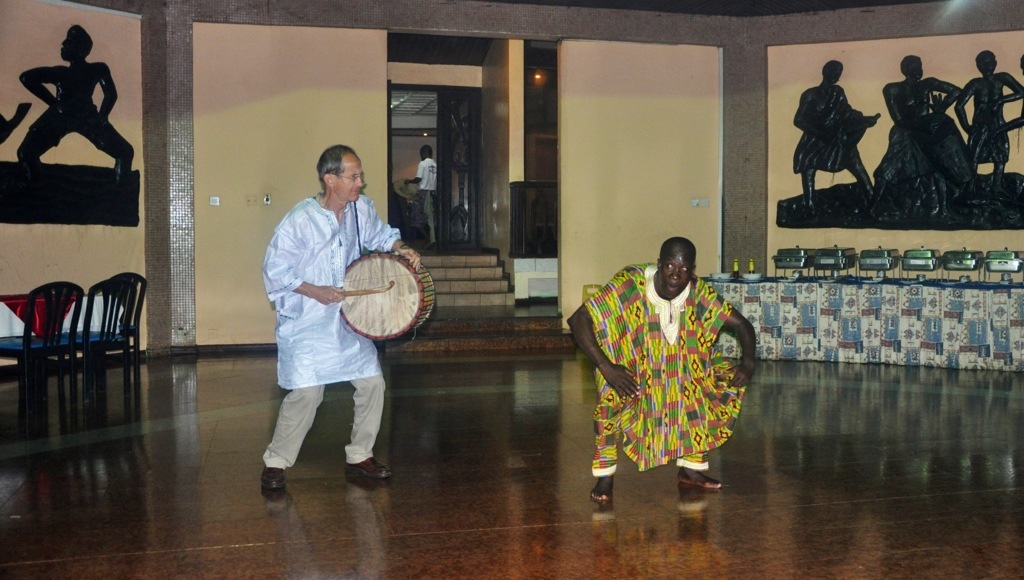
After the performance we have the birthday cake the Kwartengs have ordered, then retire (or, in my case, blog).
|
|





















